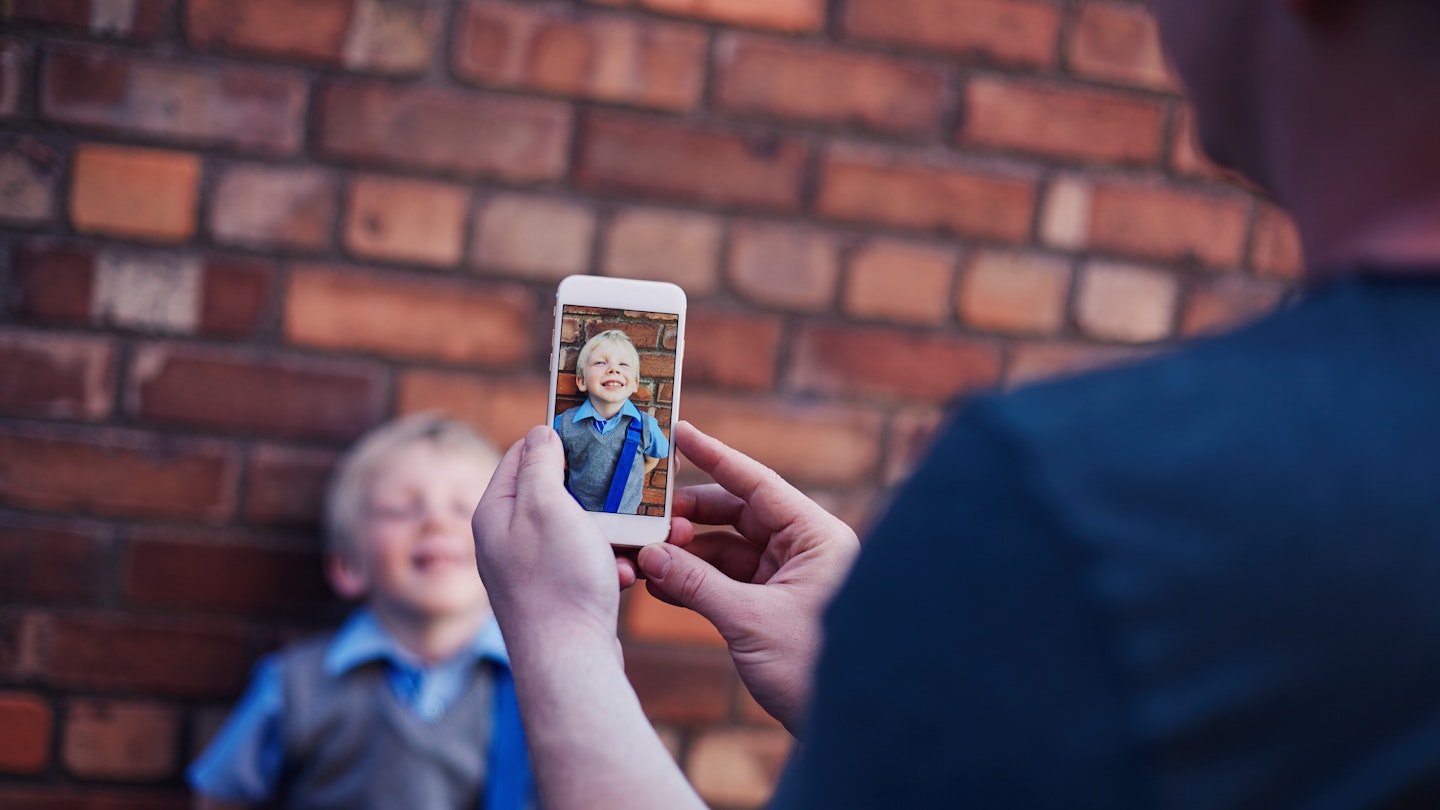When you’re used to sharing your life online, be it a delicious dinner or idyllic holiday with friends, sharing images of your children may seem like second nature. They’re quite literally the most important, and most adorable, part of your life, so how could you not share updatesabout them? Well, as we’re becoming increasingly aware, we may have to curb that habit pretty quickly.
The UK’s chief medical officers released guidelines today about how parents should tackle children using technology, and how they should be wary themselves about what they share. According to their recommendations, ‘parents and carers should never assume that children are happy for their photos to be shared. For everyone – when in doubt, don’t upload!’
Essentially, they’re highlighting an issue we fail to consider when sharenting, and that’s the child’s consent. Realistically, children aren’t old enough to understand the impact of their life being shared online until they’re a teen, so even if children do consent to their image being shared, can we take it at face value?
It’s not just a case of having those embarrassing pre-teen years tagged forever, sharing images of your child can also lead to future privacy invasions, as Barclay’s warned last year. Uploading pictures that show your child’s first pet, place of birth, maiden name, school or even teams they support can all put children at future risk of fraud given so many of these details are used to verify their identity later in life.
With this in mind, sharing pictures of our children becomes much less about updating our friends on our lives and more about privacy invasion of another human being. Given how little we truly know about the long-term impact of social media and screen time for children, it seems necessary to be overly cautious in any case, at least according to chief medical officer for England Dame Sally Davies. ‘We need to take a precautionary approach, and our advice will support children to reap these benefits and protect them from harm,’ she said.
Admitting we know too little about how children should engage with technology to understand the real consequences of our actions today, the medical officers highlighted the lack of quality research into the effects of screen time on young people. As a result, the guidelines issued focus how screen time may impact known beneficial activities, from sleep to social skills.
Guidelines included leaving phones out of the bedroom at bedtime to allow for better sleep, making meal times screen-free to encourage face-to-face conversation, taking breaks after a couple of hours lying or sitting down using a screen. But most importantly, the recommendations also include talking to kids about screen-time. Advising parents to communicate how photos and information is shared online, and can be manipulated, plus encourage them to speak up if they see something uncomfortable on social media.
As well as abiding by school rules on screen time, the medical officers highlighted the need for apps and features that show how long children have spent online, and reminds parents not to allow children to look at screens while crossing the road or partaking in activities that require their full attention.
Essentially, the guidelines are all those we know we should apply to our own lives but are clearly so much more integral when it comes to our children’s usage. Maybe a family commitment is in order to encourage all of us into healthier screen-usage, we could definitely use screen breaks before bed
